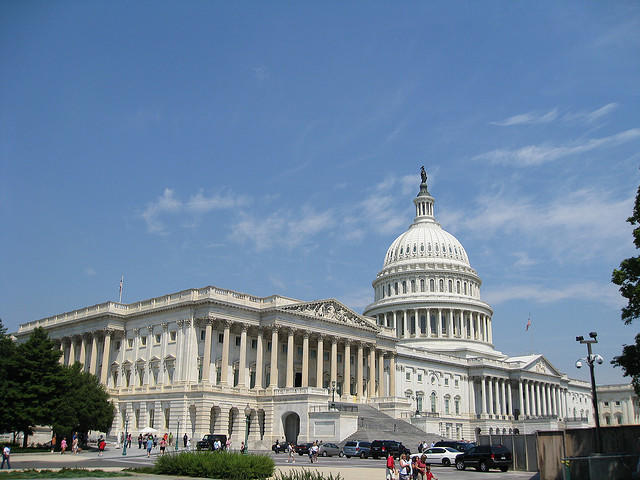
Section Branding
Header Content
How a default on U.S. debt could affect Georgians
Primary Content
LISTEN: GPB's Peter Biello speaks with Georgia Southern University's Michael Toma about the effect of a U.S. debt default.

Predictions for what would happen if the debt ceiling isn't raised are dire. America's credit rating would drop. The stock market would lose trillions in value. A recession would spread not just across the U.S., but across the globe. And the government would then have to prioritize which of its bills it would pay, creating what Michael Toma calls "winners and losers." He's Fuller E. Callaway Professor of Economics for Georgia Southern University in Savannah. He spoke with GPB's Peter Biello.
Peter Biello: People's eyes often glaze over when they hear about the debt ceiling. Now, we'll talk a little bit about the winners and losers situation you've discussed. But first, can you talk about what the debt ceiling is and why it matters to ordinary people?
Michael Toma: The debt ceiling places a limit on the outstanding obligations of the federal government by law. So once that debt ceiling is hit, the federal government is unable to borrow funds to pay its obligations. So if in the event that the federal government defaults on the debt that it has outstanding, which is a potential outcome under the current political standoff over raising the debt ceiling right now, there are significant spillover effects on the economy and in people's lives.
Peter Biello: And there has been a lot of grandstanding from both the White House and House Speaker Kevin McCarthy. Right now their two plans seem very far apart. So what are the chances that they'll come to an agreement before the country runs out of money in a couple of weeks?
Michael Toma: I think the probability of a default is very, very low. Even our politicians in Washington can understand that undermining the full faith and credit of the United States government in global financial markets is a really, really terrible idea.
Peter Biello: If the government does shut down, what impacts would we see on federal workers in places they work, like National Park Service sites, military bases, even airports where TSA workers and air traffic controllers work?
Michael Toma: There is a precedent in some sense already established in previous government shutdowns that were not debt default-related, but appropriations shortfalls. Since the mid-'70s, there have been 21 shutdowns, 10 of which have involved furloughs for federal government employees. So there are some standing practices in place. Typically, what we would expect to see is the division between essential and nonessential workers. Say, military defense, the armed forces, their pay would not be suspended, but federal civilian workers most likely would have their paid delayed. Nonessential government operations like the National Park Service — those would be shut down. Fundamentally, the nature of some of the proposals about prioritizing which obligations the federal government might choose to meet under the circumstance of a default is a horrible idea.
Peter Biello: Essentially what you're saying, it's like a family saying, "Okay, we made all these decisions to spend, but now that the bills are due, we're going to prioritize two or three and let the rest gather dust."
Michael Toma: Right. It's like looking at your credit card bill and deciding which of those expenses that you charged off are the ones that you're going to pay. When the government is effectively picking winners and losers in terms of which bills are going to be paid, the losers in that scenario are going to bear a disproportionately higher burden as opposed to the winners in that scenario.
Peter Biello: So who would be the losers in this scenario that's playing out? Would it be those Georgians who are most economically insecure? The ones who are dependent on government assistance in some way?
Michael Toma: Fundamentally, the answer to that question depends on how the political process plays out as to whether or not Congress would prefer to pay off the obligations to debt holders or would prefer to prioritize payments to individuals, say, for example, Social Security checks. So I can envision a scenario in which both of those components would be part of a prioritization process. But that still doesn't reflect the underlying damage that would be done in financial markets or to the Social Security recipients, for example, in Georgia, whose other economic security payments might be undermined by a default, whether those are the form of food stamps or the SNAP payment programs or subsidization of insurance — health insurance — coverage under the ACA or unemployment insurance benefits, the housing benefits. It's likely that some of those would fall by the wayside to prioritize Social Security. So I would imagine that even if Georgians' Social Security payments were protected, there might be other benefits that they are entitled to — payments of which would be delayed by a default.

